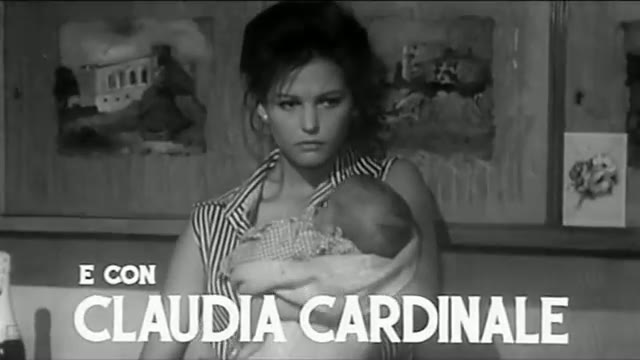Ohjaus:
Luchino ViscontiKuvaus:
Giuseppe RotunnoSävellys:
Nino RotaNäyttelijät:
Alain Delon, Renato Salvatori, Annie Girardot, Katina Paxinou, Alessandra Panaro, Spiros Focás, Max Cartier, Corrado Pani, Claudia Mori, Adriana Asti (lisää)Juonikuvaukset(1)
Luchino Visconti on yksi italialaisen neorealismin suuria taiteilijahahmoja. Eeppisessä teoksessaan Rocco ja hänen veljensä, Visconti kuvailee raivoavaa, turmeltunutta ja valtavaa yhteiskuntaa - ja perhettä - matkalla kohti katastrofia, jota ei voi välttää. Kun isä otettiin heiltä pois, Rocco muutti äitinsä ja isänsä kanssa Etelä-Italialaisesta epäonnesta Milanon teollisuuskaupunkiin aloittaakseen uuden elämän. Vahvat perhesiteet pitävät heidät yhdessä monien vaikeiden koettelemusten aikana. Veljien välinen rakkaus joutuu koetukselle, kun kiihkeämielinen Simone ja huomattavasti herkempi Rocco rakastuvat samaan katutyttöön, Nadiaan. Alkaa katkera taistelu, joka kulminoituu murhaan. (Atlantic Film Fin.)
(lisää)Videot (1)
Arvostelut (3)
This could have been a great neorealist drama supported by the presence of great film stars, led by Alain Delon. It could have brought the audience closer to the difference between the lifestyle in the Italian countryside and in the industrial metropolis, as well as the contrast between the value system of the conservative Italian south and the liberal view of the world by the northerners. It could have if Visconti hadn't drowned it in sentiment, overacting, and disgustingly melodramatic sentimentality. I wonder what the truth is behind Italian temperament. I have seen a number of Italian movies where the characters behaved civilly and contrary to the common stereotypes we have about hot-blooded Italians. Here, I find the behavior of the characters strangely affected and exaggerated, and I have a similar problem with historical films by Akira Kurosawa. Where the film was supposed to emotionally climax, i.e., the confrontation between Simon and Nada, the overacting by the actors bothered me so much that the whole impression was ruined. I cannot forgive the traditional criticism of Visconti's repeated flaw, that is, the three-hour runtime. There is a lot that could have been edited out. I also disagree with Visconti's idealization and worship of the "unspoiled" countryside based on tradition and family ties, which he contrasts with the urban lifestyle. The defense of a peculiarly conceived honor, morality, and family cohesion is, in fact, the reason why the mafia and its regional mutations, clientelism, and corruption still thrive in Italy today. Overall impression: 45%. Once again, Luchino, you have not pleased me. I'm not going to please you either... But don't worry, this really is the last time.
()
It can be as the celebrated work wants, but for me, it's simply too long and yes, in some moments even unbelievably theatrical, that it's just ridiculous. Even the final killing isn't very well filmed. Neo-realism is apparently not necessarily realism. The characters may be interesting, but they didn't impress me enough for me to become engrossed in their stories.
()
The pitfalls of the big city are unpredictable. For one brother, money, booze, and prostitutes can destroy a promising career, life, and character, while for the other, his gigantic altruism can paradoxically lead to self-destruction and more harm than good (it's no coincidence that all ancient and medieval saints end up crucified/dismembered/decapitated, etc.). However, the film's ending belongs to neither of them (despite the tragic culmination of their love triangle), but rather to the unobtrusive brother in the background, who until then was probably the most unremarkable character in the whole drama. It is he who carries the message that was very useful for Italy in its difficult post-war "neo-realist" times - to stick to honest work, not to come up with risky attempts to get rich, not to lose will and hope, not to forget about family, and grit your teeth and wait for a better world to come.
()



Mainos